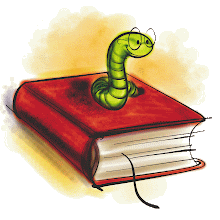








Sophie’s World is about 14-year-old Sophie Amundsen who receives a mysterious letter in the mailbox when she returns home from school one day. The envelope is addressed to her, and in it is contained just one question: Who are you? The next day, Sophie receives a strange postcard addressed to a “Hilde Moller Knag” From then onwards, Sophie’s life changed forever. Everyday, Sophie would receive an envelope containing “lectures” on philosophy by a mysterious philosopher. In the beginning, the lectures explained the meaning and concept of philosophy using simple terms and metaphors but still managed to make Sophie look at the world around her with a newer and broader perspective. In one of the letters and a “video trip” to
At the same time, Sophie has also been receiving mysterious letters addressed to Hilde Moller Knag sent by her father, Albert Knag. She has also been finding properties of Hilde, such as a red scarf belonging to Hilde under her bed. As Alberto Knox was teaching Sophie about the Renaissance, Descartes and Berkeley, Alberto told Sophie that they are both in the mind of Albert Knag and that they have to find a way to escape. It is at this point that the story changes to Hilde’s point of view. Hilde is given a copy of Sophie’s World in a ring binder by her father on her 15th birthday as a way of teaching her philosophy. When Hilde starts reading, she is caught up in the story and she is sure that Sophie is a real character who is out there somewhere. Meanwhile, Alberto Knox has a plan to escape from Albert Knag’s mind, and they must carry out the plan during Sophie’s philosophical garden party in honour of her birthday, for that is when Albert will return home from



There were two talks, several multimedia presentations and a drama show depicting the war scenario in Gaza. Even though a picture says a thousand words, I think video footages are better in this case. The audience was quiet as we watched women on the screen crying for their lost/dead/injured children with the remains of ruined buildings and smoke and dust in the background.
As one of the speakers said that night, this cannot be called an attack anymore. This is WAR. Just imagine, Gaza is only a small piece of land. Yet the Israelis are attacking Gaza by sea, land and air using army tanks and the latest nuclear bombs, which is why the death toll and the number of injuries are really high in just one day.

The people of Gaza have to be creative in order to survive. They make their own bombs and plan strategies such a releasing rockets across the borders and into Israel.
The Israelis are bombing schools, universities and homes.
They do not care whether they bomb children or adults, and for no absolute reason (although they claim that they “have their own reasons” for doing it).


They are so cowardly to attack Palestine in full force using all kinds of military inventions while knowing that the Palestinians have practically nothing. However, they are killing only the bodies of Gaza. They cannot kill the soul, determination and the mind of Gaza. The people of Gaza cry for their lost ones, but they do not regret what they have done. They have been doing this (fighting for their freedom and survival) in the past, and they will continue to do this to the end.

Some of them even thank Allah for the loss of their beloved ones (eg, I lost my mother, Alhamulillah).
There are deaths and injuries every single day.
There's neither fuel nor electricity. There is also insufficient medicine to treat the injured.
My dear fellow Muslims, this not a Palestinian issue. This is a Muslim issue. The issue of the whole Muslim ummah, for it concerns all of us as Muslims. Spread the word, increase the awareness.

What are our problems compared to theirs? How sad is it breaking up with your boyfriend compared to losing your beloved family members? Or worse, how heart-breaking is it for a little boy to see his father, mother and baby sister blown up right in front of his eyes? Imagine not sleeping because you’re dreading a presentation in front of your lecturer and classmates compared to not sleeping the whole night for fear of not being able to wake up tomorrow.
While we throw away our leftover food, our fellow Muslims are starving or dying of hunger. Everyday, there are hundreds of Muslims killed or injured by the Israelis, be it in Palestine, Bosnia or any other part of the world. But what are we, their Muslim brothers and sisters doing to help them? Are we even aware that all this is happening? Or do we just turn a blind eye and continue about our daily lives, oblivious to the sufferings and the killings of our brothers and sisters?

Most Muslims aren’t even aware about all this. They are blinded by the worldly affairs and entertainment which, unsurprisingly, are created by the Jews and the Western people themselves in order to distract us from what is happening to our fellow Muslims. In fact, we don’t even realize how blessed we are to be able to open our eyes every morning, breathe in the fresh air and go on with our day. Since we are unable or incapable of helping them physically, the best way for us to help them is by praying to Allah. At the end of each prayer, please include a du’a for our brothers and sisters in Palestine.
